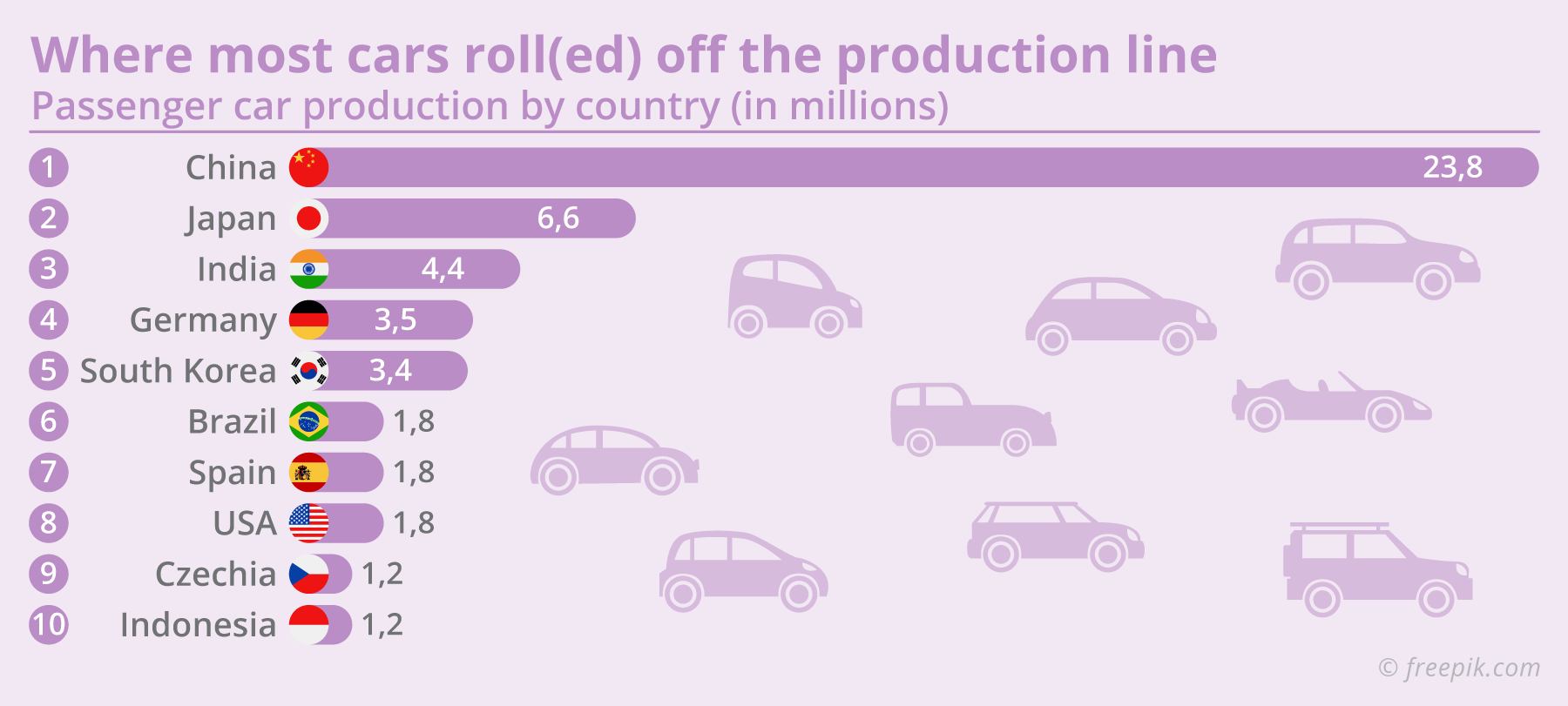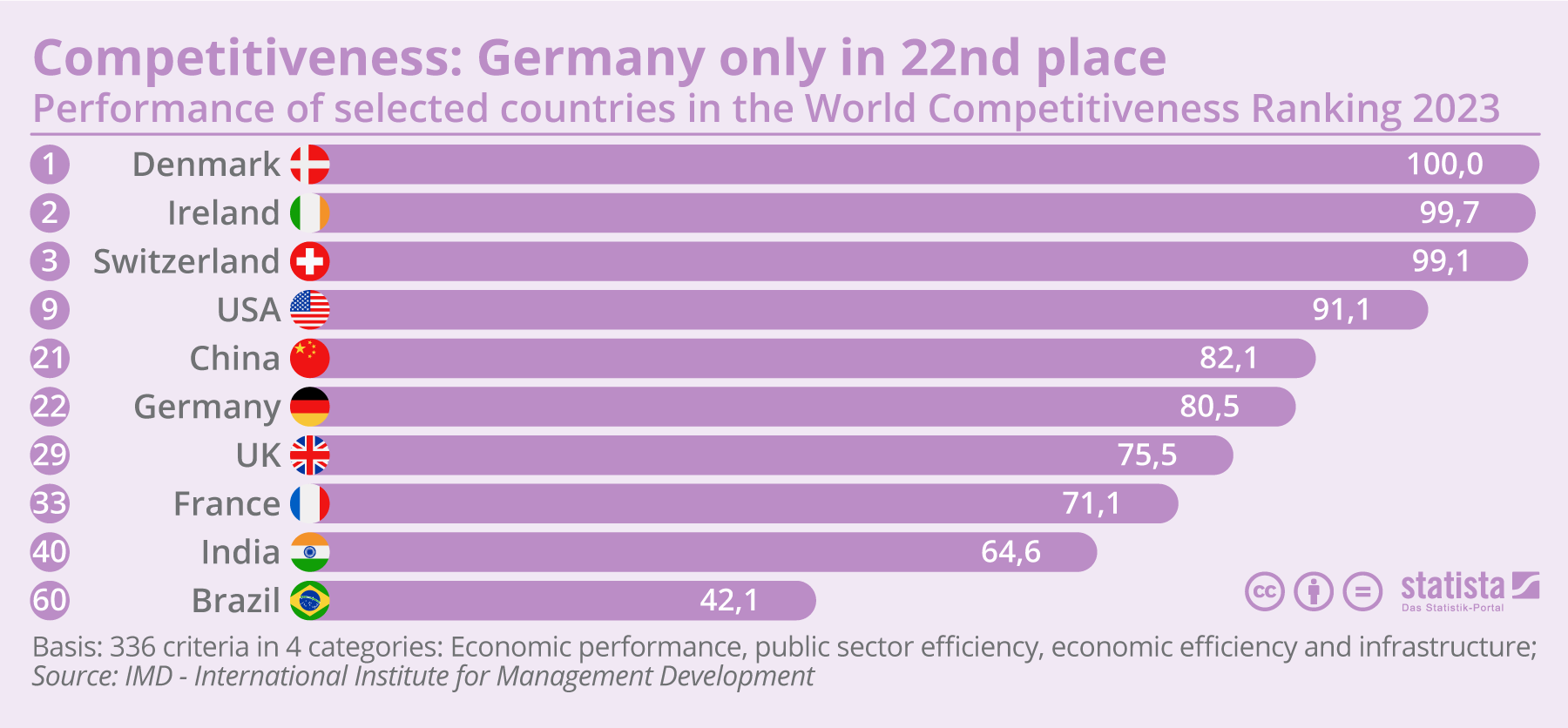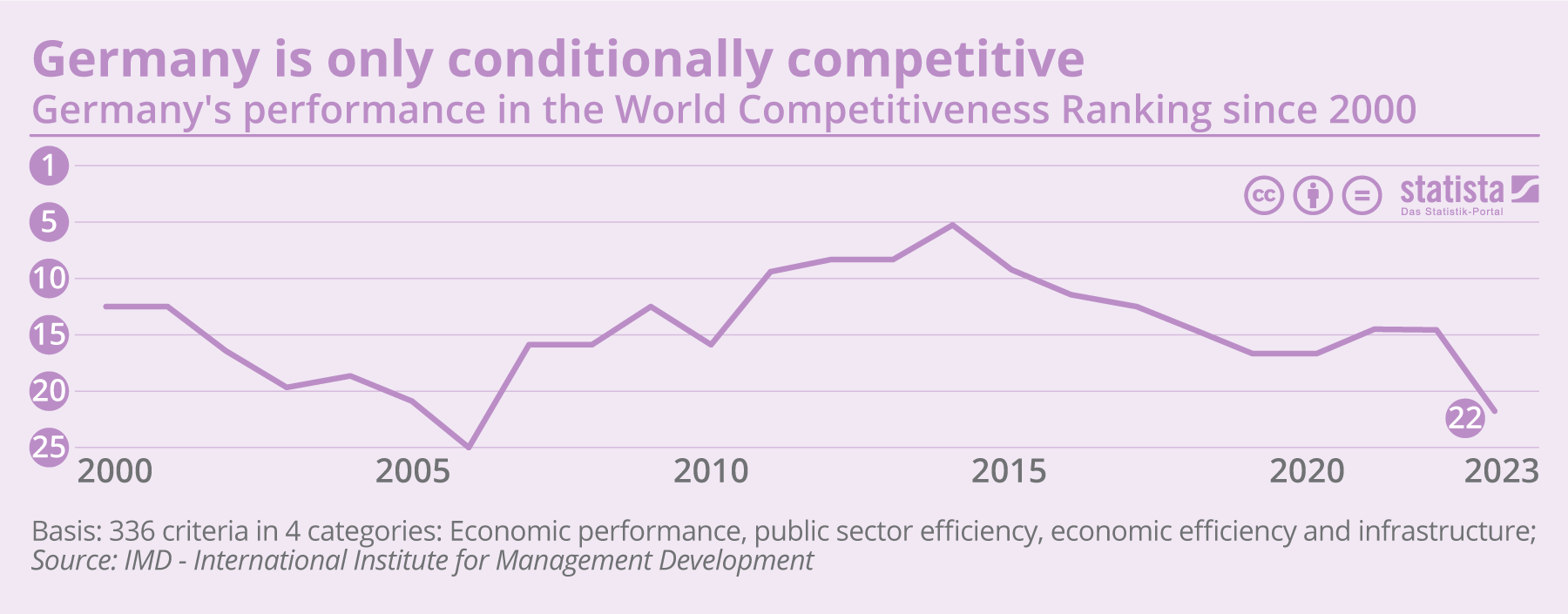Germany's global competitiveness is declining
The current World Competitiveness Ranking 2023 by the private business school IMD illustrates how competitive Germany is in the international context. The study evaluates countries each year based on 365 criteria from four areas.
At the top of the rankings, as in 2022, we find Denmark, followed by Ireland, which has improved its position by nine places, and Switzerland, which has dropped to third place. All three of these countries are smaller economies that effectively leverage their access to markets and trade partners, as noted in the IMD press release.
At the top of the ranking, as in 2022, is Denmark. It is followed by Ireland, which has moved up nine places, and Switzerland, which has slipped to third place. "All three are small economies that make good use of their access to markets and trading partners, as stated in the IMD press release.
Comparatively, Germany's economic standing at 22nd place is just behind China, as shown in another Statista graphic. However, the situation is even worse for the rest of Europe's top five economies. While the United Kingdom is ranked 29th, Italy is only able to secure the 41st position. In between, France is ranked 33rd, and Spain is ranked 36th.

For the past 35 years, the private business school IMD has been releasing an annual ranking that aims to gauge how appealing countries are to businesses. This assessment takes into account 365 criteria from four different categories.
However, Germany's performance in terms of government competitiveness has seen worse days, as illustrated in another Statista chart. In 2006, Germany was only ranked 25th. The results for 2003 and 2005 were also less than favorable. Germany received its best rating from IMD in 2014 when it achieved the 6th position. However, just a year later, it slipped four places in the ranking.

Germany now ranks fourth in automobile production
The transformation in competitiveness over the past two decades is evident when we look at the example of car production, where Germany was long considered a leader. Twenty-two years ago, Japan was the world's top car producer, and Germany was closely behind, holding the second position. According to data from the International Organization of Motor Vehicle Manufacturers (OICA), the ranking of countries with the highest number of produced passenger cars has shifted significantly over the years.
In 2002, China didn't even make it into the top 10, ranking 14th at the time. By 2009, China had risen to the number one position and has held that spot since. China currently produces approximately 24 million cars annually, while Japan manufactures around seven million, followed by India with 3.48 million passenger cars. Germany now sits at the fourth position, having produced 3.44 million passenger cars recently.

The rapid increase in production numbers in China can be attributed, in part, to the automotive industry's strong trend towards internationalization. German manufacturers like Volkswagen AG have been expanding their production operations in China significantly. Likewise, Daimler AG and the BMW Group have increasingly focused on the Chinese market in recent years. For instance, they are collaborating with Chinese partners to produce the next electric versions of their compact car series, such as the Mini and Smart, for export worldwide.
This shift has had consequences for European factories, as production and expertise are migrating to China. German manufacturers often establish joint ventures with Chinese companies, which typically involve technology transfer agreements.
 © Blue Planet Studio, AdobeStock
© Blue Planet Studio, AdobeStock

